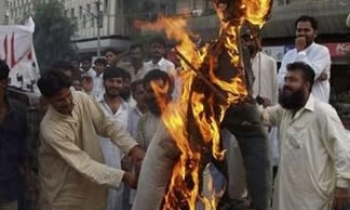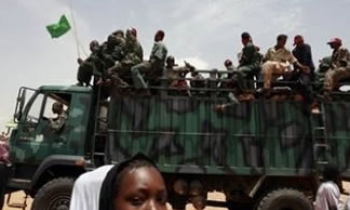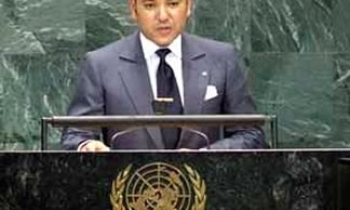The Dawn Group of Newspapers, Pakistan’s largest English language newspaper and magazine publishing house, is facing serious economic pressures as well as legal harassment by the government of Pakistan for it coverage of events and policies related to militancy and security in the country.

The group’s publisher, Haroon Hamid, distributed a letter Friday last saying President Pervez Musharraf “has become increasingly intolerant toward criticism in the press and toward the publishing of news that reflects poorly on the performance of his government on security matters.”
Hamid said authorities have punished his company by withholding government advertising, a revenue source on which Pakistani papers rely heavily. “Since December 2006, the Dawn Group is facing massive advertising cuts equivalent to two-thirds of total government advertising,” he said.
Hamid said the government has also withheld a television broadcast licence from the Dawn Group, even though the application has been given requisite approvals from the Pakistan Electronic Media Regulatory Authority (PEMRA) and the Ministry of Information.
According to the Dawn Group, the reason for the government’s hostility is the independent coverage by the group’s publications of sensitive topics such as the military action against Al-Qaeda and the Taliban in North and South Waziristan areas bordering Afghanistan, the insurgency in parts of the restive south western province of Balochistan, and a possible resurgence of covert government support to Kashmiri militants.
“We are very concerned by threats to the independent Pakistani press,” said Committee to Protect Journalists (CPJ) Executive Director Joel Simon. “When the government pulls advertising and holds up licences, it sends the unmistakable signal that it wants critical coverage to be toned down.”

“We fear that, in this presidential election year, the independence of the media is going to be under attack from the government,” Reporters sans Frontières (RSF) said. “President Musharraf must immediately stop this kind of authoritarian intervention, which jeopardises the freedom of Pakistani journalists to decide what they cover and how they cover it. Under no circumstances should they be used as propaganda tools.”
In September 2006, the Pakistan Press Foundation (PPF) said, the government approached the Dawn Group seeking a news blackout on coverage of Balochistan and the troubled North and South Waziristan tribal areas. The group turned down the request as being unreasonable. As a consequence, since December 2006, the government has imposed massive advertising cuts equivalent to two thirds of total federal government advertisements.
The government also retaliated by withholding a television broadcast licence to the Dawn Group in violation of the judgments of the High Court of Sindh and the consent declarations by PEMRA and the Information Ministry.
According to the Dawn Group, in December 2005, Pakistan Prime Minister Shaukat Aziz, had himself informed Haroon that the government was keen that the group should start an English language news channel. Musharraf also publicly declared the government’s decision to withdraw restrictions on cross-media ownership, which was followed by the passage of legislation by parliament to withdraw cross-media restrictions. Subsequently, the Dawn Group set up an organisation employing over 350 journalists, technicians and managerial personnel. The denial of a television broadcast licence has become a serious cause of concern for the future financial viability of the publishing group.

Since 2004 the group has also faced intermittent legal harassment, threats and suspension of advertisements by the provincial government of Sindh, the province where headquarters of the Dawn Group are located.
At least one other media group has come under attack this month. On March 16, riot police fired tear gas and roughed up staff inside the Islamabad office of the Jang Group, which houses Geo TV, the Urdu-language Daily Jang, and English daily The News. The raid came a day after authorities ordered Geo to stop airing its daily news programme, “Aaj Kamran Khan Ke Saath” (Today with Kamran Khan).
Minister for Information and Broadcasting Mohammad Ali Durrani announced Tuesday that Pakistani authorities will work with media groups to form a press council to address numerous complaints from local media houses hit with reprisals after critical coverage of the government.









